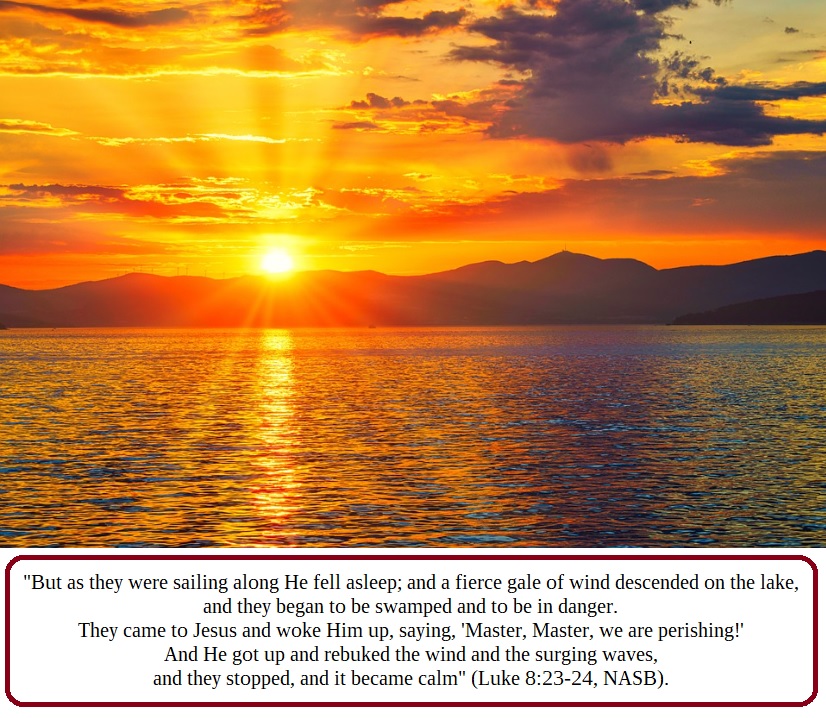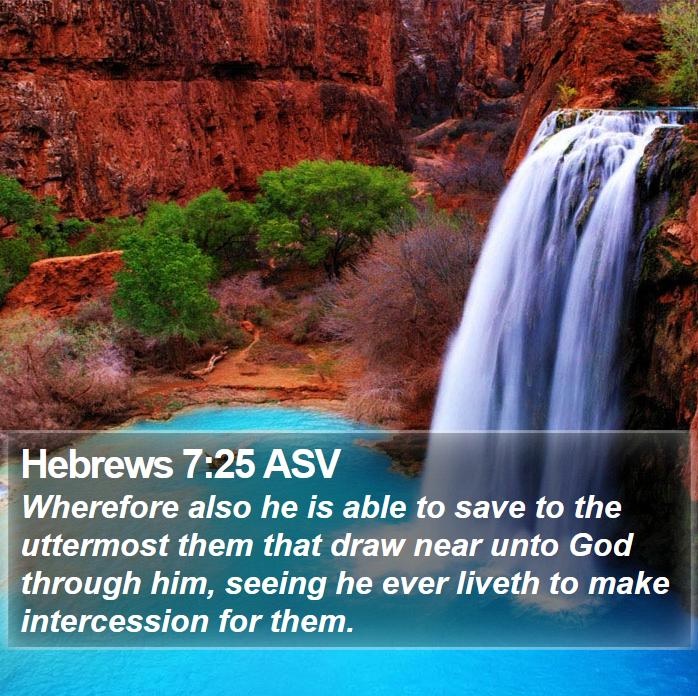“Go therefore and make disciples of all the nations…teaching them to observe all that I commanded you; and lo, I am with you always, even to the end of the age” (Matthew 28:19-20, NASB).
——————–
Contents:
1) Paul’s Motivation (Aude McKee)
——————–

-1-
Paul’s Motivation
Aude McKee
For some time I have been considering the motivations of Paul’s life. Probably no person suffered more for the cause of Christ, than did he; and few, if any, have surpassed him in devotion and commitment. What made him different from so many of us today? What did he have that lots of us lack?
The word “motivate” means “to stimulate to action; provide with an incentive or motive; impel, incite.” The word “motivation” is defined as “an incentive, inducement or motive, especially for an act.” The same act may be motivated differently in different people. One man buys a new automobile because his old one is worn out. His motive is need. A second man feels he can save money by getting rid of the old car before it begins to cost him for repairs, so his motivation is economics. A third man sees a shiny new model in his neighbor’s driveway, and he trades out of pride. Two men might outwardly be equally committed to the Lord, but because of entirely different reasons. The first views the church as an institution in which he takes pride. He wants it to grow, surpass others in the area, etc., because it is “his church.” The other man is equally faithful and works just as hard, but all he does comes from a heart filled with love for the Lord and the salvation of souls. The first man may see his zeal cool, his attendance slacken, and his work retarded if things don’t go to suit him. If his favorite preacher moves or problems arise, his motivation may be gone. But the second man is stable and unwavering. His faithfulness is not tied to any man, or program. Externals don’t affect his relationship to the Lord or the fact that he lives in a world of dying, lost people.
Some Things Which Did Not Motivate Paul
Now let us notice three things of a negative nature about Paul’s motivations. First, he never did anything out of spite or ill will. In Phil. 1, we learn that some were preaching Christ in order to add affliction to Paul’s bonds (vv. 12-18). Certainly Paul did not defend the motive of those wicked men, but he rejoiced that Christ was being preached. Second, he never obeyed the Lord simply because it was convenient. Paul was a wealthy, well-educated and prominent member of the Pharisee sect, but from the day he met the Lord on the road to Damascus until the day he died in a Roman prison, he was continually faced with doing the inconvenient. When he learned the truth from the lips of Ananias, “he arose and was baptized.” But that meant turning his back on his cronies with whom he had labored to destroy the Lord’s church, and as soon as the news got out, he probably could count his friends on the fingers of one hand. The religion that he and his ancestors had held dear was put behind him because he began preaching that the law was nailed to the cross (Col. 2:14), that Jesus is the Son of God (1 Cor. 1:2), and that He not only died on the cross but He was raised from the dead (1 Cor. 15:14). And third, Paul was not motivated by the new and the novel. He wasn’t on fire one day and dead as a mackerel the next. Day after day of hard work, very little of this world’s goods, persecution, hardship, and the danger of death were his lot in life. But in the face of all this, he could write, “Be ye steadfast, unmoveable, always abounding in the work of the Lord, forasmuch as you know that your labor is not in vain in the Lord” (1 Cor. 15:58).
Motivated By Gratitude
What motivated Paul? For one thing, he was motivated by gratitude. On one occasion he wrote, “For I am the least of the apostles, that am not meet to be called an apostle, because I persecuted the church of God. But by the grace of God I am what I am…” (1 Cor. 15:9-10). He never forgot what he had been and what he was able to become because of God’s mercy and grace. I think that sometimes many of us feel we were pretty good before we obeyed the gospel — sort of like Simon in Lk. 7:36-48 — and our gratitude simmers on low heat. If we could get a glimpse of the horrors of hell that we would have suffered had it not been for God’s forgiveness, we might be capable of a deeper sense of gratitude. How thankful we need to be every day of our lives!
Motivated By Trust In Jesus
Another thing that motivated Paul was his faith and trust in the Lord. In 2 Tim. 1:12, he said, “I know whom I have believed, and am persuaded that He is able to keep that which I have committed unto Him against that day.” To the Galatians he made an unusual statement: “I am crucified with Christ, nevertheless I live; yet not I, but Christ liveth in me. And the life that I now live in the flesh, I live by the faith of the Son of God, who loved me and gave Himself for me” (Gal. 2:20). There is probably nothing that will rob a person of his zeal any quicker and more effectively than doubts. How could a person serve the Lord faithfully and make sacrifices gladly, if he is not sure that the one he serves is for real? When John the Baptist was in prison, he was afflicted with this problem of doubt, but Jesus laid it to rest. He told the two disciples John had sent, to go and tell John again what they were hearing and seeing. “The blind receive their sight, and the lame walk, the lepers are cleansed, and the deaf hear, the dead are raised up, and the poor have the gospel preached unto them” (Matt. 11:2-5). I doubt Paul ever doubted for a moment, but if we suffer from the problem, the answer lies in more investigation of the evidences of our Lord’s divinity (Rom. 10:17).
Motivated By Desire To Save The Lost
A third thing that motivated Paul was his deep desire to see lost people saved. In 2 Tim. 2:10, he told this young man he loved so dearly, one of the secrets behind the sacrifices he made. “I endure all things for the elect’s sake, that they may also obtain the salvation which is in Christ Jesus with eternal glory.” Again, regarding his Jewish brethren (in the flesh), he said, “Brethren, my heart’s desire and prayer to God for Israel is, that they might be saved” (Rom. 10:1). One chapter back, he made an amazing statement when he said he would be willing to be lost himself if his Jewish kinsmen could be saved! If we could arrive to the point of spiritual development where we see our neighbor as a person on his way to hell, instead of a good fellow who is a little mixed up in his religion, it would revolutionize our conduct. I have read that Henry Ward Beecher would occasionally say, as he preached before an audience of thousands, “I preach as a dying man to dying men and women.” May God help us to increase our concern for the souls of dying men and women.
Motivated By The Unseen
Paul was also motivated by his ability to see the unseen. In 2 Cor. 4:8-9, “We are troubled on every side, yet not distressed; we are perplexed, but not in despair; persecuted, but not forsaken; cast down, but not destroyed.” How could he keep on keeping on under such circumstances? “For which cause we faint not; but though our outward man perish, yet the inward man is renewed day by day. For our light affliction, which is but for a moment, worketh for us a far more exceeding and eternal weight of glory. While we look not at the things that are seen, but at the things that are not seen. For the things that are seen are temporal, but the things that are not seen are eternal” (vv. 16-18). Paul could see his eternal spirit as clearly as others of us can see our hands or feet. He could experience the second coming of Christ as though it had already happened, and heaven and hell were as real to Paul as Corinth or Antioch. When we are spasmodic in our attendance, neglectful of our responsibilities, and hesitant to make sacrifices, it could be that our spiritual eyesight is at fault. We need, like Paul, to keep our eyes on the unseen instead of putting so much emphasis on this world.
Conclusion
I have been around for a considerable number of years, and back in my boyhood days a lot of people got their water from a well with a “pitcher pump” device to draw the water. As I recall, those things had to be primed every time you used them. They weren’t on “go” when the need existed. But other people more fortunate had a spring close by and the water ran all the time. Paul was not a fellow who had to be “primed.” He did not need to be pumped to get him started. He was more like a spring with internal motivation that “forced” him to worship, to preach the gospel, to break out in prayer and song even in the midst of trying circumstances. I grew up in a country congregation in western Indiana. The lighting system in the building was unique. In the rear of the building was a tank of gasoline with an air pump attached. Pipes ran from this tank to one or two drop lights with mantles like our gasoline lanterns today. But the system was not designed to run for an hour, and so about half-way through services, Woodford Neal would go to the rear, pump for a few minutes, and then the dim lights would be bright again. When we find ourselves in need of “pumping up,” the fault is not in the Lord but in us. We are surrounded every hour of every day by the goodness of God. “Every good and perfect gift cometh down from above” (James 1:17). In Christ Jesus we have access to all spiritual blessings (Eph. 1:3). Gratitude ought to be ever-present in our hearts. Too, we are surrounded every day by lost people and “into our hands the gospel has been given.” Under such circumstances our work of preaching and teaching ought never to slacken. It is true that God’s word adequately supplies us with evidences that will cause us to grow in faith and trust. As we act on our faith day by day, our trust will deepen as the Lord’s promises are fulfilled in our own lives. Finally, we are caused to be more consistent in our service to our Lord as we learn to keep our eyes on things that transcend this earth and this life.
— Via Viewpoint from the Valley Grove church of Christ, May 23, 2021
——————–
Romans 15:13
“Now may the God of hope fill you with all joy and peace in believing, so that you will abound in hope by the power of the Holy Spirit.”
— NASB
——————–
The Steps That Lead to Eternal Salvation
1) Hear the gospel — for that is how faith comes (Rom. 10:17; John 20:30-31).
2) Believe in the deity of Jesus Christ, the Son of God (John 8:24; John 3:18).
3) Repent of sins. For every accountable person has sinned (Romans 3:23; Romans 3:10), which causes one to be spiritually dead (Ephesians 2:1) and separated from God (Isaiah 59:1-2; Romans 6:23). Therefore, repentance of sin is necessary (Luke 13:5; Acts 17:30). For whether the sin seems great or small, there will still be the same penalty for either (Matt. 12:36-37; 2 Cor. 5:10) — and even for a lie (Rev. 21:8).
4) Confess faith in Christ (Rom. 10:9-10; Acts 8:36-38).
5) Be baptized in water for the remission of sins (Mark 16:16; Acts 2:38; 22:16; 1 Pet. 3:21). This is the final step that puts one into Christ (Gal. 3:26-27). For from that baptism, one is then raised as a new creature (2 Cor. 5:17), having all sins forgiven and beginning a new life as a Christian (Rom. 6:3-4). For the one being baptized does so “through faith in the working of God” (Col. 2:12). In other words, believing that God will keep His word and forgive after one submits to these necessary steps. And now as a Christian, we then need to…
6) Continue in the faith by living for the Lord; for, if not, salvation can be lost (Matt. 24:13; Heb. 10:36-39; Rev. 2:10; 2 Pet. 2:20-22).
——————–
Tebeau Street
CHURCH OF CHRIST
1402 Tebeau Street, Waycross, GA 31501
Sunday: 9 a.m. Bible Classes and 10 a.m. Worship Service. We also have a Song Service at 5 p.m. for every first Sunday of the month.
Wednesday: 7 p.m. for Bible Classes
evangelist/editor: Tom Edwards (912) 281-9917
Tom@ThomasTEdwards.com
https://thomastedwards.com/go/all.htm (This is a link to the older version of the Gospel Observer website, but with bulletins going back to March 4, 1990.)




